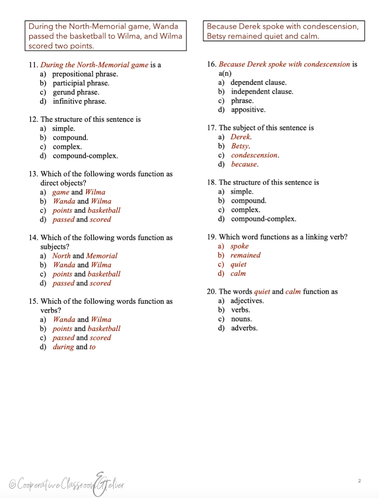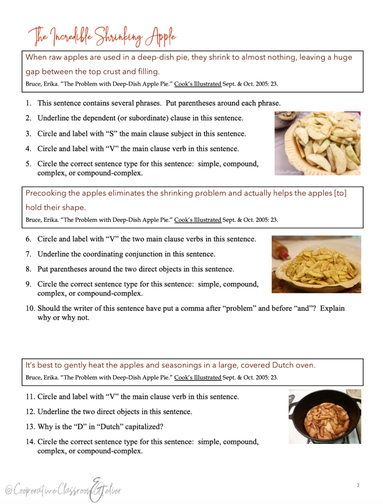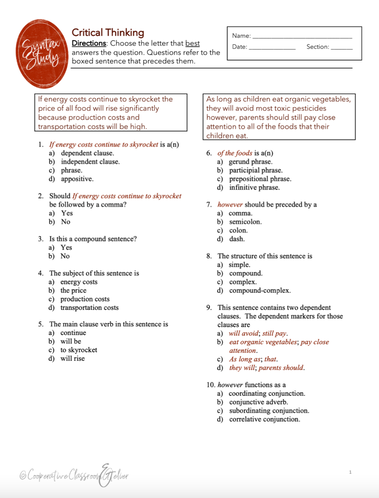 Knowing that parts of speech, sentence types, and punctuating sentence types are things that are currently assessed on our level ten, semester one final exam, I'm already thinking about what the students need to know--regardless of whether or not that assessment will remain in place. In addition, I'm considering syntactic styles--phrases, verbals perhaps, word classes, and so on--groupings that can assist students in achieving certain EFFECTS (I like to call this the Big E:) in their writing. And with these goals in mind, I move backwards. Next, I need to find out what my students know. And finally, I want to be able to provide them with the things that will be most helpful to them--individually--and we are a wildly diversified bunch!--Yes, I am SO very lucky! 🥰 We are beginning with some crical thinking about shrinkingapples. And we'll go from there! Scholars will be working individually, in pairs, and in teams. And from there, I'll begin matching syntactic arrangements with amped-up writing goals for the final quarter. Interested? |


